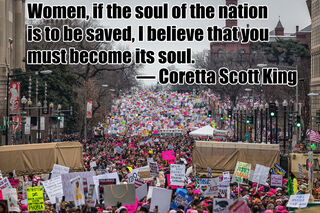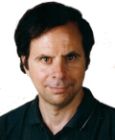
During President-elect Joseph Biden’s campaign, he repeatedly stated that he was fighting for the “soul of the nation,” but did not explain precisely what it meant for a nation to have a soul or why the soul of the United States was in jeopardy. In this post, I want to take seriously this rather philosophical claim, unpack the idea of a national soul using some ancient wisdom, and offer some philosophical counsel on its implications for the United States at this juncture in time. My intentions are not political; nor are they intended to disparage dedicated Americans who have voted their conscience.
The Platonic Roots of a State Soul
The idea that a nation has a soul was introduced by Plato in the Republic, in which he stated that the state is infused with a soul that resembles the soul of an individual person. “Must we not acknowledge,” he said, “that in each of us there are the same principles and habits which there are in the State; and that from the individual they pass into the State?” (435E) These principles, he maintained, are reason, will, and appetite.
According to Plato, in a healthy individual, reason directs the soul by orchestrating cooperation between the passions and the will. Accordingly, the healthy individual must possess (1) temperance (rational constraint over the appetites), (2) wisdom (knowledge and prudence), and (3) courage (not being afraid to do what is right).
The healthy state resembles a healthy individual, for in such a state the leader, who leads by reason, is wise. This means that he is knowledgeable and prudent in statecraft, making decisions promoting the welfare of the state and its citizens. The citizens, who represent the passions, are temperate. This means they exercise rational self-control including over destructive impulses such as ones motivated by hatred and blind rage. The military and police, who represent the will, are, in turn, courageous. This includes exercising force to the extent necessary, but no more than necessary. Courage does not mean blind obedience at the expense of endangering national security. Plato intended courage of the military to “exclude mere uninstructed courage, such as that of a wild beast or of a slave. This, he said, “is not the courage which the law ordains, and ought to have another name.” (430B)
So, on this bit of Platonic analysis, is the United States in a fight for its soul?
What Can Destroy the State's Soul?
The most formidable danger of the disintegration of the soul of a nation may be its failure to distinguish between fact and fiction: “The pandemic does not exist.” “It is rounding the corner.” “Masks are ineffective in reducing the spread of the coronavirus.” “There were widespread voter irregularities in the 2020 presidential election.” “President Trump won the 2020 presidential election.” Such statements (and there are countless others) breach the boundary between reality and unreality. Reason cannot rule the soul of a nation when such falsehoods are promulgated and transformed into policy or political action.
The facts are not playthings of national leaders; nor is the safety and security of its citizens to be sacrificed for political gain. The government does not exist to advance the personal wealth or advantage of its officers. Military force is not supposed to be used to put down peaceful demonstrations; commanders’ first allegiance is to protect the interests of the nation, not their own interest or that of other officers of state.
The citizens of a healthy state do not turn against each other; burn down buildings and loot. Their individual souls are not directed by racial hatred and the desire to do violence to others. They do not risk the health of fellow citizens and themselves by disregarding science and common decency. Instead, they are governed by rational constraint and empathy for the plights of others; and they are compliant with health and safety standards, including those provided by reputable organizations such as the Centers for Disease Control and Prevention (CDC) and the World Health Organization (WHO).
Police departments, which serve and protect, do not tolerate the unnecessary use of deadly force or racial profiling. Legislators act in accordance with the law, and respect the outcomes of legitimate elections, even if the outcome is not favorable to their political interests. They do not cowardly acquiesce in activities that undermine the rule of law. Healthy democratic states allow for a peaceful transition from one administration to the next. Science and scientists are not sidelined for reasons of political gain at the demise of the citizens. True leaders do not proclaim themselves the protectors of only those citizens who vote for them or agree with their views; nor do they separate children from their parents and put them in cages.
Such things are the stuff of wayward dictatorships that have lost their souls. They are not the stuff of a vibrant state governed by reason, not blind passion. They are not the stuff of a citizenship held to higher standards by its governors and temperate in the face of conflicting and sometimes dangerous passions. Nor are they the stuff of the arms of government—legislators, governors, national defense officers, presidential cabinet members and their chief advisors, police, and courts of law.
Plato believed that when there is such disequilibrium between the three parts of the state soul, the state is on a trajectory toward demise. He believed that the soul of a nation could not survive when its citizens are at war with themselves and fail to see each other as fellow citizens in a joint venture to improve lives. He believed that the soul of a nation could not survive where unreason and chaos ruled the individual souls of citizens. Plato also predicted that if a demagogue gained the reigns of a democracy, he would drive it into such a state of confusion; and out of such confusion would emerge a dictator who sucked the lifeblood of its citizens and left an empty state corpse to rot and wither away.
The Challenge Ahead
Citizens need to see past the veneer of politics and narrow self-interest and to look to the larger picture of a nation at a landmark crossroad. The choice is that of moving towards a healthier soul, healing from its wounds, united as one nation under banners of hard-won and defended freedom from tyranny and oppression. The alternative is to plunge deeper and deeper into the dark, chaotic, self-defeating caldron where bygone souls of dead nations, commandeered by self-aggrandizing dictators, lay rotting in their putrid stench. The United States has passed the first hurdle in the fight for its soul, namely a national election. But this fight may be far from over.




